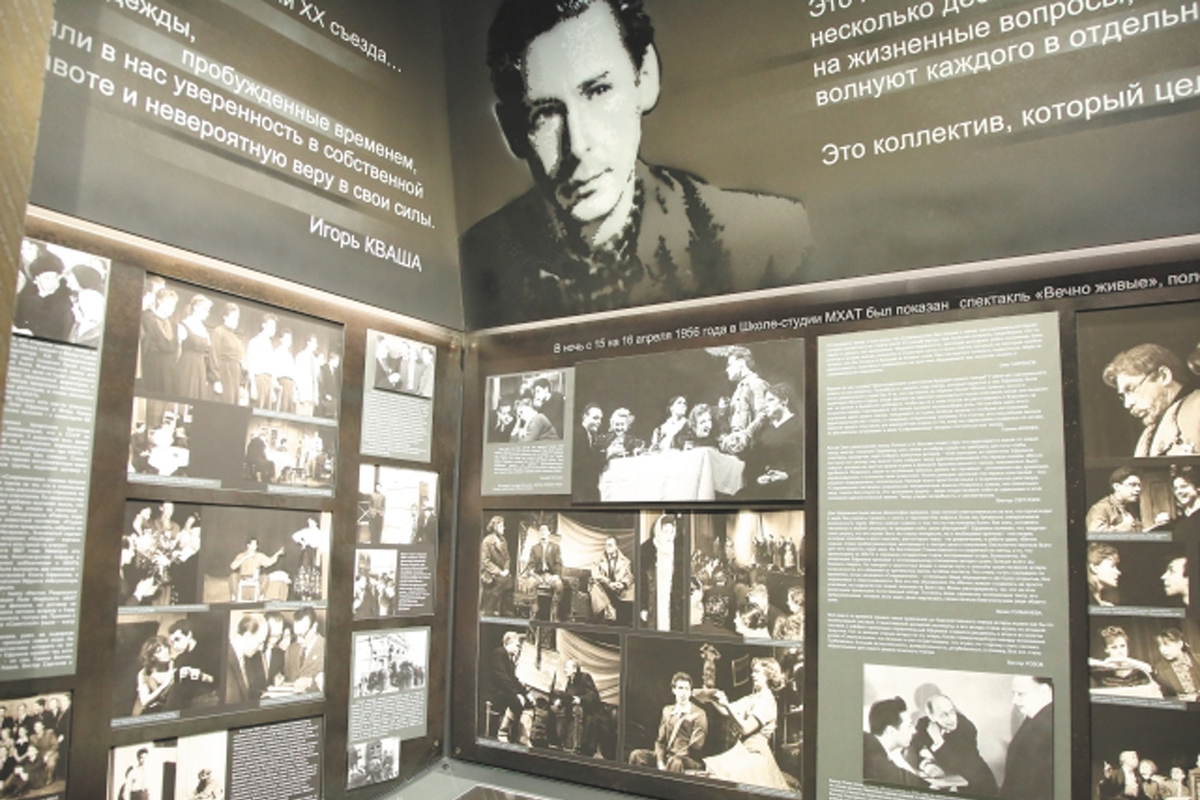The Sovremennik Theater opened a museum of its history on its birthday
[ad_1]

The museum is small, but how much is there?
Today Sovremennik celebrates its 68th birthday. The date is not round, but right now the theater on Chistye Prudy is receiving a gift – a museum of its history. Frankly speaking, long-awaited. But, as they say, better late than never.
The premises for the museum were planned during Galina Volchek’s lifetime: they planned to open it immediately after the renovation of the building above the rotunda. But a number of dramatic events (the departure of the artistic director at the end of 2019, the short-lived life of the new management, etc.) slowed down the opening of a place to store the memory of the theater and those who built it for more than half a century.
And memory is significant, even if you evaluate it not only in photos and memories, but in mega- and terabytes. How the theater began, born in the bowels of the Moscow Art Theater and the Studio School. How he was pushed around before he acquired studio status. As the director of the Moscow Art Theater, Vasily Solodovnikov saved them from the Moscow Art Theater party committee. Finally, how he argued and defended his ideological and artistic truth. Photos, famous and unique, from the archives of the theater and the personal archives of Galina Volchek, Nina Doroshina, Igor Kalyadin, Igor Kvasha, Elizaveta Kotova, Raisa Lenskaya, Elena Millioti, Abram Mil, Elizaveta Nikitina, Liliya Tolmacheva, Leonid Erman and others now tell about this wonderful people.
The author of the concept of the new museum, Evgenia Kuznetsova, who worked as a theater manager for 25 years, said that when preparing the exhibition, 90 percent of archival materials – protocols, photos and other documents – were digitized. Some of them are on stands, others are stored on three multimedia screens (directed by Alexander Zhikin).
— On one of them there are artists and staff workers, which is especially important, including ticket takers, wardrobe attendants, and stage assemblers. Those who have worked in the theater for at least 10 years,” says Evgenia Kuznetsova. — On the second screen there is a chronicle of all the events that happened over 68 years, and on the third there is a video from the life of the theater.
— What struck you when working with documents? What new things have you discovered?
— When Tatyana Prasolova and I were selecting material (selection of photo illustrations and media content), it was striking that, while still very young people, the students and artists collected by Oleg Efremov from the very beginning were attentive to recording everything that happened in their lives, from nightly meetings, rehearsals before tours, foreign trips and more. I read these protocols and became convinced that Sovremennik was created and developed as a psychological theater. This was the most important thing for its two leaders – Oleg Efremov and Galina Volchek. Times have changed, and the theatrical language has transformed along with them. And yet the main means of expression for this type of theater was and remains the artist. The ability of the actor of the contemporary school to “be and not seem” allowed directors of different directions to produce performances on the theater stage that arouse constant interest and become artistic events.
The museum premises are small, some 115 sq.m., but there is so much in it! Along one wall, architect Sergei Popov placed narrow columns with images of Efremov, Tabakov, Volchek, Kvasha, Tolmacheva, Ivanova – the first contemporaries – in original angles. 700 photographs on the walls – from them you can trace the history from start to finish.
The organizers have also prepared a surprise for the audience: from each of the posters hung in the only hall of the museum, you can tear off a piece as a souvenir. The poster piece also has a secret: on the reverse side there is a quote from some performance of the legendary theater. The MK columnist received a quote from Intuition. On a white piece of paper it is written: “When the time comes, you will see.” I saw that finally, after all the mistakes, falsehood, confusion and ideological substitutions, a living, and not just fashionable, life was getting better in the theater on Chistye Prudy.
Newspaper headline:
A museum opened in Sovremennik
[ad_2]
Source link






